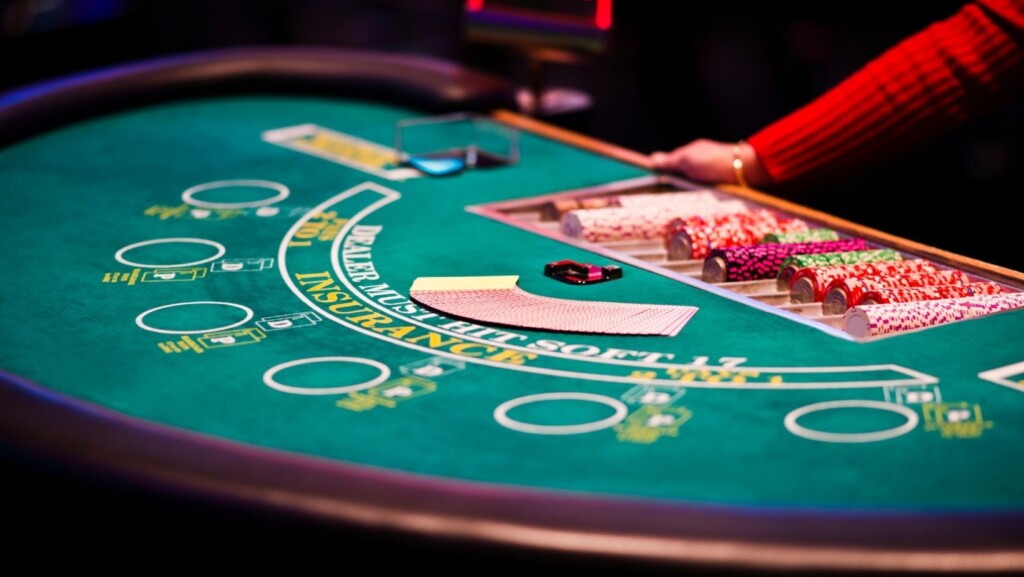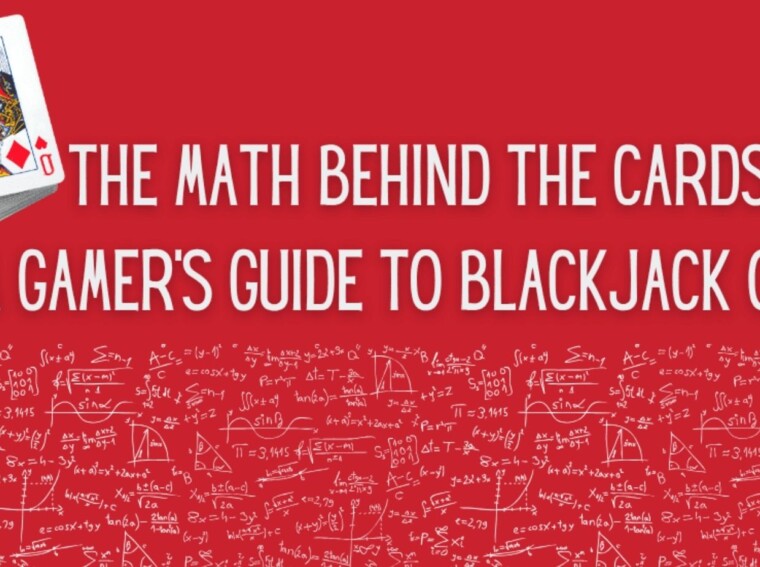Ever spent hours grinding for that one legendary item with a 1% drop rate? Or meticulously planned your character’s build to maximize their critical hit chance? If so, you already understand the core principle of blackjack: it’s not just about luck; it’s a game of numbers, probabilities, and making the smartest move based on the data you have. Think of the dealer as a raid boss and your hand as your current gear setup. Your goal is to optimize your performance for the best possible outcome.
Before we deal with the specifics, let’s reframe the game. Forget superstition and “lucky feelings.” Every decision in blackjack is a calculated risk, much like deciding whether to use a powerful ability with a long cooldown.
Blackjack as an RPG: Understanding Your “Base Stats”
In any role-playing game, your character’s effectiveness is based on core stats like strength, agility, and intelligence. In blackjack, the cards themselves are your base stats. Each card has a fixed numerical value, and the deck is the game’s unchangeable rulebook. A 7 is always a 7. A king is always a 10. The Ace is your versatile stat, the one you can spec into being a 1 or an 11, depending on the situation.
The game’s primary objective is to get your hand’s total value to 21, or as close as possible, without going over. Going over 21 is called “busting.” Think of it as a critical failure or a debuff that instantly takes you out of the round. Your opponent, the dealer, plays by a stricter set of rules, which is information you can use to your advantage.
Now that we’ve established the game’s core mechanics, how do you actually calculate your odds of success? This is where we move from base stats to real-time combat calculations, or what gamers might call your “crit chance.”
Calculating Your “Crit Chance”: Basic Blackjack Probabilities
Let’s say you’re holding a total of 16 and the dealer is showing a 7. This is a classic, tough spot. Do you “hit” (take another card) or “stand” (stick with what you have)? In a video game, this is the moment you decide whether to risk a powerful, low-accuracy attack or play it safe.
The math can guide you. A standard 52-card deck has 16 cards worth 10 points (the 10s, Jacks, Queens, and Kings). This means roughly 30% of the deck is a 10-value card. If you have 16, hitting is risky because any card higher than a 5 will cause you to bust. The dealer’s up-card is your most important piece of intel; it’s like seeing the boss telegraph their next big attack. A strong dealer card (like a 7 through Ace) puts pressure on you, while a weak one (like a 4, 5, or 6) means the dealer is more likely to bust themselves. By applying a consistent strategy, players can shrink the house advantage to less than 1%, and a full grasp of the detailed blackjack odds reveals how every card played shifts those chances.
Knowing your odds on a single hand is one thing, but what about the long game? That’s where the “house edge” comes in, which you can think of as the game’s built-in difficulty setting.
The House Edge: The Game’s Inescapable “RNG Tax”
In many online games, there’s a system in place that ensures the “house,” or the game developer, always has a slight advantage. Think of auction house fees or the subtle math that governs loot drops over millions of players. This is the house edge. It’s a statistical advantage the casino has built into the game’s rules that guarantees it a profit over the long term.
However, unlike a slot machine, which is pure Random Number Generation (RNG), your choices in blackjack dramatically affect that edge. Playing without a plan is like randomly clicking abilities in a boss fight; you’re going to lose, and lose badly. But by using “basic strategy,” you’re essentially following a perfect skill rotation. Basic strategy is a chart that tells you the mathematically optimal move for every possible hand combination. It’s the “skill tree” that minimizes the house’s built-in advantage.
While you can’t eliminate the house edge entirely, you can use skill to reduce it to a razor-thin margin, giving you a much better shot during your session. This is what separates blackjack from games of pure chance and puts it in the realm of games of skill, much like understanding the mechanics of RNG in video games can help a player understand their odds.
Experience Points and Long-Term Strategy
Every hand you play earns you more than chips; it earns you knowledge. Just like grinding the same boss fight over and over in a video game to learn its attack patterns, blackjack rewards experience. Each round is a data point, teaching you how probability behaves in real time and how your decisions impact the outcome.

True mastery isn’t about winning a single hand; it’s about making the right call consistently across hundreds of them. Winning hands build confidence, but losing ones build wisdom. Blackjack is a grind in the best sense, a test of patience, data interpretation, and discipline. Each mistake refines your instincts, turning you from a lucky player into a statistical strategist.
This section reframes blackjack as a game of long-term growth rather than instant luck, perfectly aligning with the gamer-style narrative of the original text.
FAQs
Is blackjack all luck, like a loot box?
Not at all. While the card you receive next is based on chance (the shuffle), your decision to hit, stand, double down, or split is a skill-based choice.
Does counting cards mean I can predict the future?
Card counting isn’t about predicting the exact next card. It’s about tracking the ratio of high-value cards to low-value cards left in the deck.
What’s the single most important “stat” to know in blackjack?
The dealer’s up-card is the most critical piece of information you have. It dictates your entire strategy for the hand.
Is learning basic strategy like using a “walkthrough”?
That’s a perfect analogy. A basic strategy chart is a mathematically solved guide for the game. It provides the single best action to take for any hand you’re dealt against any dealer up-card to maximize your return over the long run.
